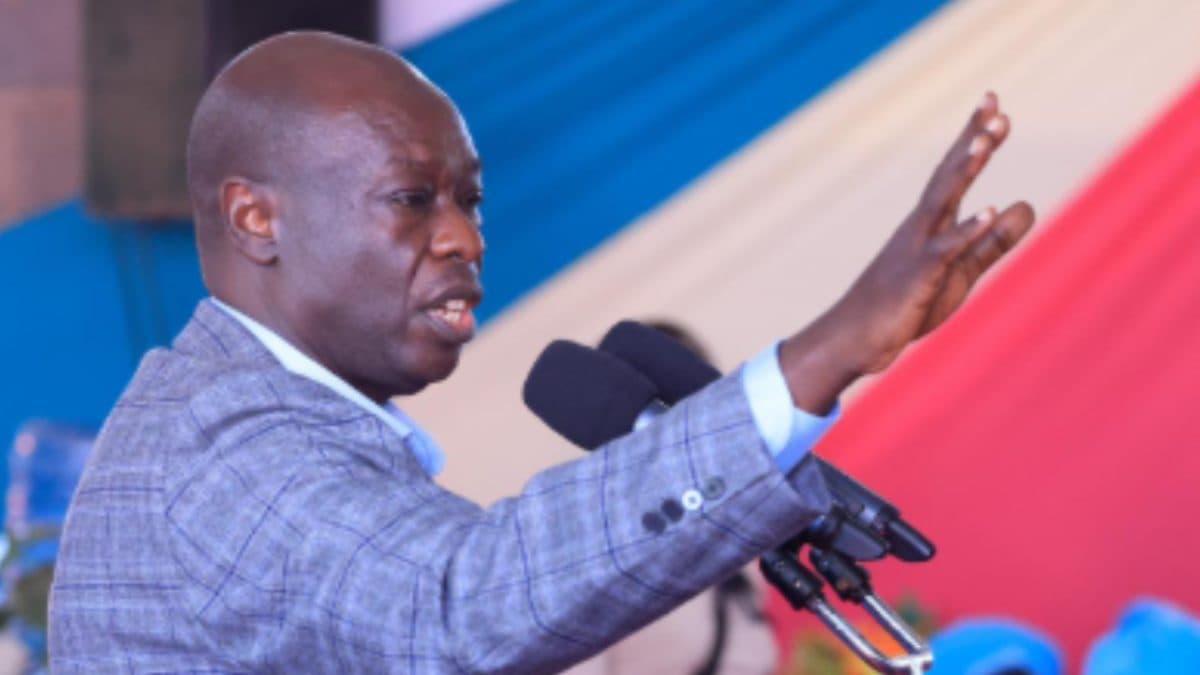We're loading the full news article for you. This includes the article content, images, author information, and related articles.
Deputy President Rigathi Gachagua directly challenges President William Ruto, stating the administration's true adversaries are dissatisfied Kenyans, not political rivals, escalating the public feud within the Kenya Kwanza government.

Deputy President Rigathi Gachagua has issued a sharp public rebuke to President William Ruto, declaring that the President's real opponent is not the opposition, but rather the millions of Kenyans struggling with the high cost of living. The comments, made on Monday, November 3, 2025, at a United Opposition press briefing in Nairobi, mark a significant escalation in the widening rift at the heart of the Kenya Kwanza administration.
“I have heard William Ruto bragging that with the demise of Raila Odinga, he has no opponent. I would like to inform him that we are not his opponents; his opponents are the people of Kenya,” Gachagua stated at the Stephen Kalonzo Musyoka Command Centre. He accused the President of celebrating the political death of the former Prime Minister and warned him to prepare for a voter backlash in the 2027 general election.
Gachagua's remarks were a direct response to President Ruto's comments made in Malava on Thursday, October 30, where he dismissed the current opposition as lacking a credible agenda. “My only worthy competitor was Raila Odinga. I will finish these ones in the morning,” President Ruto had stated, accusing other opposition figures of focusing on divisive politics instead of a development agenda.
The Deputy President's statement channels a growing public discontent over economic hardship, which recent polls confirm is the primary concern for most Kenyans. A September 2025 survey by Infotrak revealed that the high cost of living and unemployment are the most pressing national issues, cited by 40% and 36% of Kenyans, respectively. Another poll by TIFA Research in the same month found that 65% of Kenyans believe the controversial Finance Act 2025 has worsened their financial situation. The TIFA report noted the bill is “deeply unpopular due to its direct impact on daily expenses, income, and economic plans.”
Similarly, a poll by Research 8020 released on October 30, 2025, indicated that 61% of Kenyans believe the country is headed in the wrong direction, with 82% citing the cost of living as their top issue. Gachagua’s assertion that the President's opponent is “the people of Kenya” appears to be a calculated move to align himself with this widespread public sentiment.
The public confrontation highlights the severe fractures within the ruling coalition. The relationship between President Ruto and his deputy has been deteriorating for over a year, marked by Gachagua skipping state events and veiled rebukes from the President. Allies of the President have openly criticized Gachagua, while Gachagua has been consolidating his political base in the Mt. Kenya region, often framing himself as a defender of the region's interests against perceived neglect by the administration.
This feud is widely seen as a distraction from pressing national issues and a premature start to the 2027 succession politics. Analysts suggest the infighting threatens the stability of the United Democratic Alliance (UDA) party and the government's ability to implement its agenda. During the press conference, Gachagua, flanked by other opposition leaders, reinforced their commitment to unifying against the President. He announced that the United Opposition is making significant progress toward fielding a single presidential candidate for the 2027 election.
“We have clear instructions from the people of Kenya to agree on one candidate to face Ruto and end his rule,” Gachagua affirmed, framing the upcoming by-elections on November 27, 2025, as a “dress rehearsal” for their unity strategy. As of Tuesday morning, State House had not issued a formal response to the Deputy President's remarks. The direct challenge signals a new, more confrontational phase in the governing coalition's internal power struggle, with significant implications for Kenya's political landscape.
Keep the conversation in one place—threads here stay linked to the story and in the forums.
Sign in to start a discussion
Start a conversation about this story and keep it linked here.
Other hot threads
E-sports and Gaming Community in Kenya
Active 9 months ago
The Role of Technology in Modern Agriculture (AgriTech)
Active 9 months ago
Popular Recreational Activities Across Counties
Active 9 months ago
Investing in Youth Sports Development Programs
Active 9 months ago
Key figures and persons of interest featured in this article